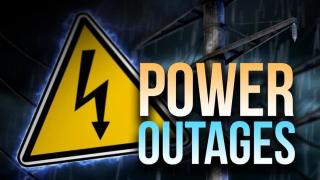Tropical Storm Isaias: Update August 5, 2020

The Borough of Oakland just got off a conference call with Orange and Rockland Utilities. 200,000 out of 300,000 Orange and Rockland customers were affected, with 34,000 impacted in Bergen County. The outage will be measured in days, not hours. Orange and Rockland anticipates further information to be published tonight at 7:00 p.m. on www.ORU.com. Please continue to check on your neighbors, friends, and senior citizens. If anyone needs assistance, please call the Oakland Police Department at (201) 337-6171. Stay tuned for further updates.
Generator Safety:
Backup generators can provide an emergency power supply, enabling you to keep important equipment running during a power outage. It's important to make sure generators are properly installed and operated to prevent health and safety risks for you and utility crews.
How to Properly Operate a Generator:
- Exhaust from backup generators, both portable and stationary, contains a high level of carbon monoxide (CO) gas, which can be dangerous or even fatal if inhaled. Follow these steps and view the diagrams below to ensure you are properly operating your generator and avoiding contact with deadly CO:
- Always read and follow the manufacturer's operating instructions before running generator
- Engines emit carbon monoxide. Never use a generator inside your home, garage, crawl space, or other enclosed areas. Fatal fumes can build up, that neither a fan nor open doors and windows can provide enough fresh air.
- Only use your generator outdoors, away from open windows, vents, or doors.
- Use a battery-powered carbon monoxide detector in the area you’re running a generator.
- Gasoline and its vapors are extremely flammable. Allow the generator engine to cool at least 2 minutes before refueling and always use fresh gasoline. If you do not plan to use your generator in 30 days, don’t forget to stabilize the gas with fuel stabilizer.
- Maintain your generator according to the manufacturer’s maintenance schedule for peak performance and safety.
- Never operate the generator near combustible materials.
- If you have to use extension cords, be sure they are of the grounded type and are rated for the application. Coiled cords can get extremely hot; always uncoil cords and lay them in flat open locations.
- Never plug your generator directly into your home outlet. If you are connecting a generator into your home electrical system, have a qualified electrician install a Power Transfer Switch.
- Generators produce powerful voltage; never operate under wet conditions. Take precautions to protect your generator from exposure to rain.
Protect Yourself and Others:
- Keep freezers and refrigerators closed.
- Only use generators outdoors and away from windows.
- Disconnect appliances and electronics to avoid damage from electrical surges.
- Have alternate plans for refrigerating medicines or using power-dependent medical devices.


